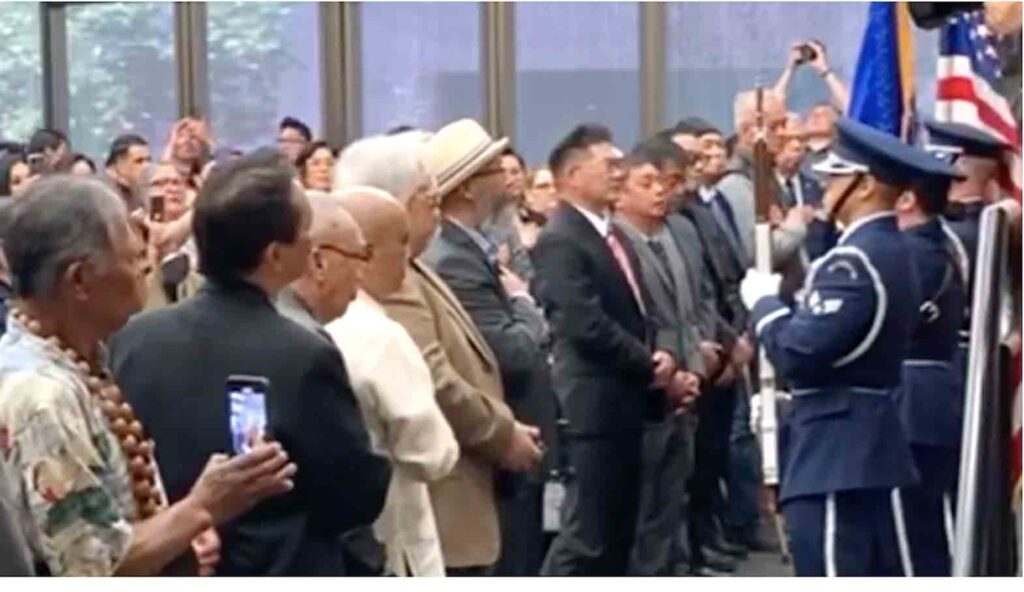Congressional Gold Medal awards honor 18 Filipino WWII veterans in Vallejo, California

A ceremony on Saturday, April 15 honored 18 Filipino veterans of World War II who were awarded the Congressional Medal of Honor, at the John F. Kennedy Library in Vallejo, California. YOUTUBE
A crowded ceremony on Saturday, April 15 honored 18 Filipino veterans of World War II who were awarded the Congressional Medal of Honor, at the John F. Kennedy Library in Vallejo, California.
The Congressional Gold Medal (CGM) is the highest civilian honor the United States can bestow, authorized with the signing of Public Law 114-265 by then-President Barack Obama, On Dec., 14, 2016, seventy-five years after the United States entered World War II.
The Filipino veterans honored with Congressional Gold Medals were: Petronio Ado, Marciano Canaya, Luis Gamboa, Alfredo Nasaire, Luis Pasion, Numeriano Armas, Apolonio Cruz, Alex Fabros, Julian Gonzales, Jacinto Cutaran, Deogracias Nunez, Federico Rosales, Marcelino Canaya, Leoncio Cruz, Teotimo Gabac, Larry Hidalgo, Jose Pasion and Tiburcio Sobremonte.
The medal’s design features the inscription “Filipino Veterans Of World War Ii.” The reverse design displays both the American and Filipino World War II-era flags. “United States Army Forces In The Far East” is inscribed along the top border of the design. Featured centrally are the inscriptions “Duty To Country” and the key locations of “Bataan & Corregidor,” “Luzon,” “Leyte,” and “Southern Philippines.”
The significant years of “1941,” “1945,” and “1946” are inscribed on a scroll between the flags. “Act of Congress 2016” is inscribed along the bottom of the design.
Vallejo Vice-Mayor Rozzana Verder-Aliga, daughter of a WWII veteran, emceed the program, with Mayor Robert McConnell, U.S. Rep. John Garamendi (D-CA08) and U.S. Army Reserve Brig. General Steven McClaughlin delivering messages congratulating and praising the veterans for their bravery and patriotic service.
On July 26, 1941, then-President Franklin Roosevelt called upon all organized military forces of the Philippines into the service of the United States under the U.S. Army Forces in the Far East (USAFFE). When Pearl Harbor and Manila were attacked in 1941 on Dec. 7 ans 8, respectively, these soldiers were brought into direct combat as the U.S. officially entered World War II.
During the Japanese invasion of the Philippines, U.S. and Filipino soldiers fought together in many battles across the Philippines, Unfortunately after the war, President Harry Truman signed laws, such as the Rescission Act of 1946, that stripped away many promises of benefits and citizenship for Filipino Veterans.

